Can you tell us about your educational background?
I attended Immaculate Heart Comprehensive High School, Maryland, Lagos, studied Mass Communication at the University of Lagos for my Bachelor’s degree and subsequently in 2009, obtained my Master’s degree in Public Health from the Royal Tropical Institute in the Netherlands.
And your professional background?
My work experience actually began immediately after I completed secondary school in Action Health Incorporated (AHI) where I worked as a Youth Assistant from July 1997-December 1998. I continued with AHI on a part-time basis from 2000-2003. After graduation from the University of Lagos, I worked with John Hopkins University, Center for Communication Program on the COMPASS Project for three years, and afterwards I worked briefly with Family Health International 360 (FHI360) before joining UNFPA in July 2011 where I now work as a Behaviour Communication Change/ Advocacy Analyst.
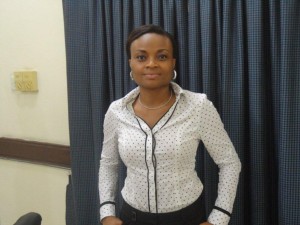 How did you get to apply for the Youth Assistants Programme at AHI?
How did you get to apply for the Youth Assistants Programme at AHI?
I actually learned about Action Health Incorporated (AHI) through a friend of mine who was a member of the AHI-initiated Health and Life Planning Club in my secondary school. Although I wasn’t a member of the club, I was actively involved in the educational and outreach activities at the AHI Youth Center. Soon after we left secondary school, one of my friends who had started working at the AHI youth-friendly clinic as a Youth Assistant, gained admission into the university midway into 1997 and had to leave thereby creating a vacancy. I, on the other hand, was still awaiting my university admission results so I applied for the job and was hired. I worked there for the remaining part of the year and also throughout 1998.
What was it like working at AHI as a fresh secondary school leaver?
I was 17 years old when I started working with AHI and my experience with the organization helped me become focused and more responsible. Personally, I learnt how to manage my time and resources and was also able to set my life goals; I knew what I wanted to study for my first degree and second degree and the professional career I desired. Looking back now, I am fulfilled that I achieved these goals and much more.
My career path was greatly influenced by my contact with AHI because I discovered my passion for working with young people and providing information about sexual and reproductive health generally. All through my undergraduate years, I continued working with AHI on a part-time basis and was privileged to anchor two TV programmes -‘Youth Forum’ and ‘Growing Up’, which were shown on Lagos Television (LTV) weekly. Going on air was fun for me and, of course, it satisfied my thirst for reaching out to young people with positive sexuality information. The TV shows also gave me leverage during my course of study as a Mass Communication student, as well as empowered me with the confidence and ability to express myself to an even larger audience – something not many young people my age could do at that time. I also represented Nigeria at global youth programmes in Portugal, India and U.S.A. through AHI. By the time I graduated from the University, I was ready to face whatever challenge life would bring my way.
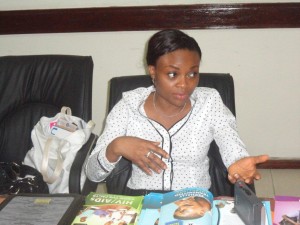 You also started your own youth focused non-governmental organization (NGO)?
You also started your own youth focused non-governmental organization (NGO)?
Yes, I did. By the time I graduated from the University of Lagos in 2002, I was all fired up and ready to do something to also make a difference for young people so, I started a youth focused NGO named Youth to Youth Initiative (Y2Y) with three young people with a similar vision. Y2Y was set up to promote behavior change among young people through positive peer influence. As founding members, we wanted to share so much of what we had gained through AHI and other agencies with other young people.
How would you describe your work now as a BCC/ Advocacy Analyst at UNFPA?
What I do as a Behaviour Change Communication and Advocacy Analyst with UNFPA is mainly to provide technical assistance to our partners at the State and Federal levels, as well as the Non-Governmental Organizations that we work with, to implement evidence-based communication programmes to improve the sexual and re- productive health (SRH) of women and young people. We also support youth participation to give young people a voice to advocate on issues that affect them at the community, state or national level. Similarly, we support the government to provide quality SRH services to meet the needs of our target audience.
From your experience working in youth development, what have you found to be some of the biggest challenges facing young people in Nigeria today?
The challenges young people face today are essentially the same as years ago when I was a teenager- early marriage, teenage pregnancy, sexually transmitted infections, HIV/AIDS and lack of access to information and services to address these problems etc. The indicators on SRH for young people have not improved significantly and the dynamics and context are even more complex than they were before. Another problem is unemployment; a young person completes schooling and has nothing to do. And you know the saying, ‘an idle mind is the devil’s workshop’. This situation makes young people vulnerable to engaging in risky behavior. In addition, the quality of education is poorer now than a decade ago, and as a result, we produce university graduates that are unemployable. Young people also need to be taught livelihood and entrepreneurial skills very early to enable them start their own businesses.
The parent-child communication gap, which is now even wider, doesn’t make things any easier. Parents need to pay attention to supporting their children with developing values and social skills needed to maintain healthy and responsible relationships. This is why the United Nations is helping the government to take responsibility for the health and development of young people. For instance, on the issues of early marriage among girls, early childbirth and maternal and child mortality, the UN acts as the intermediary between young people and the government.
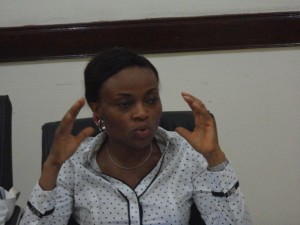 And what are some of the biggest challenges facing those working in the youth development and SRH field in Nigeria today?
And what are some of the biggest challenges facing those working in the youth development and SRH field in Nigeria today?
The first and biggest problem is access to funds, and this is because sexual and reproductive health education programmes and services are not usually a core part of the government’s budget. Unless the government increases investments in youth programmes, we will continue to have the current challenges with sustainability and impact of programmes. For instance, implementation of the Family Life and HIV Education (FLHE) in schools is inadequate across various states because of the over-reliance on external donors for programme funding. Meanwhile, this is the main programme government has designated as the country’s key education sector response to address the HIV epidemic affecting young people. If government seriously commits to implementing the FLHE programme and allocates the resources required, there will be a better chance of achieving universal coverage.
Inadequate capacity building and on-the-job training opportunities remains a challenge to developing and sustaining the pool of skilled workers providing SRH services. The basic systems to provide information to people on SRH are also lacking, especially reaching rural and other hard-to-reach areas. If people remain ignorant about simple life-saving information such as contraceptives, delivery by a skilled attendant or early diagnosis and treatment of STIs, preventable deaths will continue to occur. The media can play a prominent role to enlighten people with accurate SRH information and promote positive health behaviours.
Are there any emerging solutions to help address these challenges?
Yes, take the case of the increasing number of private sector organizations interested in youth development today- that’s a good thing. However, they would do well to partner with NGOs to create win-win relationships i.e. the private sector organizations tap into the expertise of competent youth development NGOs to support their corporate social responsibility initiatives, while the NGOs secure indigenous funds to implement their social development missions thus reducing their over-reliance on international donor funding.
Various development partners, as well as the private sector and NGOs also need to design their programmes based on evidence and the cultural context of the communities where they choose to carry out their SRH and youth development initiatives. For instance, there are problems of child marriage in the northern part of the country, while there are serious issues of violence against young women and harmful traditional practices in the southern parts. This makes it essential to ensure that development programs are informed by documented evidence of the community’s needs.
What’s your advice for a young person interested in working in international development or starting a youth focused initiative?
The young person must have a passion and drive to make a difference in the field; must be self-motivated and ready to pay his/her dues. S/he has to be patient to develop the expertise required in the identified area of interest, adopt the values to live by and be able to answer the question “what do I stand for or want to be known for?” That’s the only way you’ll be able to carve a niche for yourself in your chosen field.

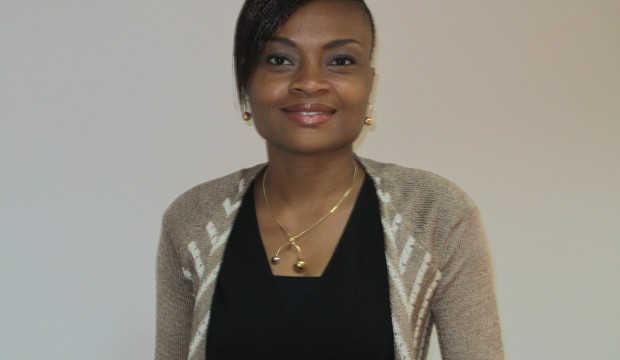
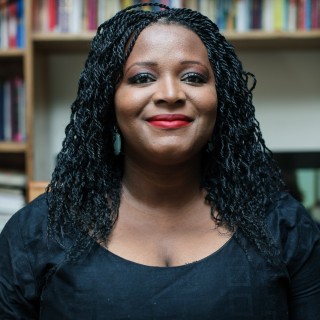
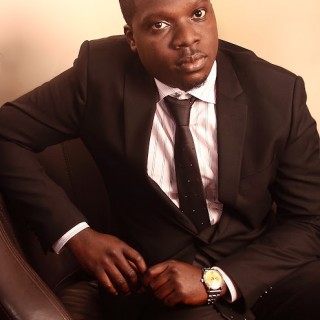

You must be logged in to post a comment.